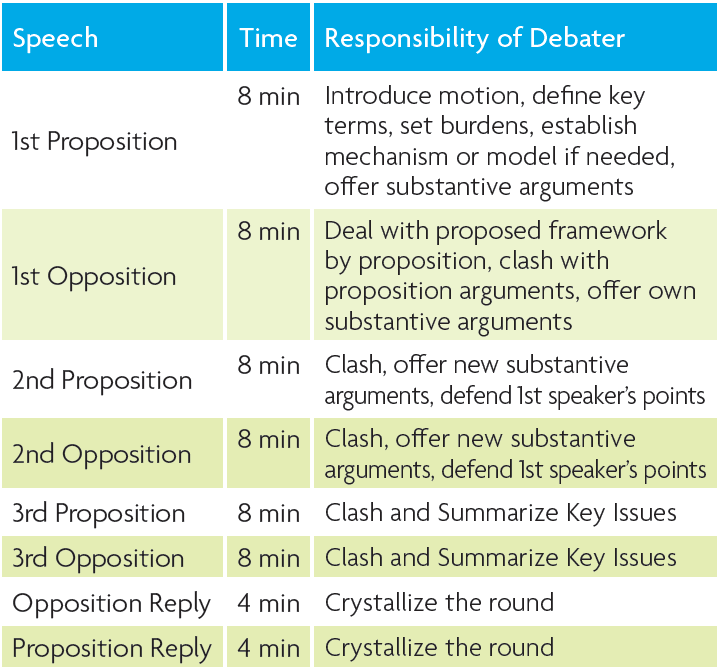Can Autism Make It Hard To Speak?
Can autism make it hard to speak? If you’ve ever wondered about the relationship between autism and difficulties with verbal communication, you’re in the right place! Whether you’re a curious student or someone with a personal connection to autism, this article will explore the challenges individuals on the autism spectrum may face when it comes to speaking.
Communication is a fundamental part of our everyday lives, and for individuals with autism, it can present unique obstacles. Autism is a neurodevelopmental disorder that affects how a person thinks, interacts, and communicates with others. While autism is a spectrum disorder with varying characteristics, one common challenge is difficulty with speech and language skills.
For some individuals on the autism spectrum, speaking can be challenging due to factors such as delayed language development, limited vocabulary, and struggles with articulation. In this article, we’ll delve into the reasons behind these difficulties and explore different forms of communication that individuals with autism may utilize. So, let’s dive in and discover more about how autism can impact speaking abilities!
:max_bytes(150000):strip_icc()/is-late-speech-a-sign-of-autism-259888-v2-2cd7a2607c79463db302094da6fbf934.jpg)
Can Autism Make it Hard to Speak?
Autism, a developmental disorder, can impact various aspects of a person’s life, including their ability to communicate verbally. For some individuals with autism, speaking can be challenging due to difficulties with language development and social communication skills. In this article, we will explore the reasons behind the speech challenges faced by individuals with autism and discuss strategies and resources that can help improve communication.
Understanding Autism and its Impact on Speech
Autism, also known as Autism Spectrum Disorder (ASD), is a neurodevelopmental disorder characterized by difficulties in social interaction, communication, and repetitive behaviors. While autism affects each individual differently, many people with autism struggle with speech and language skills. These challenges can manifest in different ways, such as:
- Delayed speech development: Children with autism may start speaking later than their typically developing peers.
- Loss of previously acquired language skills: In some cases, children with autism may experience a regression in their language abilities.
- Echolalia: Echolalia is the repetition of words or phrases previously heard, either immediately or later. It is a common speech pattern seen in individuals with autism.
These difficulties may stem from underlying issues with sensory processing, cognitive abilities, and social communication. Now, let’s delve into some of the key factors that contribute to the speech challenges faced by individuals with autism.
Sensory Processing Differences
Many individuals with autism have differences in sensory processing, which can impact how they experience and respond to stimuli in their environment. This can affect their ability to attend to and process speech sounds. Some individuals may be hypersensitive to certain sounds, finding them overwhelming or distracting. Others may be hyposensitive, meaning they may not pick up on subtle auditory cues necessary for language development. These sensory processing differences can make it challenging for individuals with autism to process and understand spoken language, leading to difficulties in speaking.
Additionally, motor coordination and sensory integration can also influence speech production. Fine motor control of the mouth, lips, and tongue is necessary for accurate articulation and speech clarity. Difficulties in motor planning and coordination, known as dyspraxia, can further contribute to speech challenges in individuals with autism.
It is important to note that while sensory processing differences are common in autism, not all individuals with autism will experience the same sensory challenges or exhibit difficulties in speech.
Communication and Social Interaction Difficulties
Communication and social interaction difficulties are hallmarks of autism. Individuals with autism may have challenges understanding nonverbal cues, using gestures, and engaging in reciprocal conversation. They may struggle with grasping the nuances of social communication, such as turn-taking or maintaining appropriate eye contact. These difficulties can impede the development of language and hinder successful communication.
For example, a child with autism may struggle to understand the intention behind a question, leading to responses that may seem unrelated or socially inappropriate. Others may have difficulty initiating or sustaining a conversation, impacting their ability to express their thoughts and ideas effectively. These challenges can make it hard for individuals with autism to speak and engage in meaningful verbal interactions.
However, it is important to note that not all individuals with autism have severe speech challenges. Some individuals with autism develop good speech skills and can communicate effectively, while others may experience mild to severe difficulties in verbal communication.
Strategies and Resources to Support Communication
While individuals with autism may face challenges in speaking, various strategies and resources are available to support and enhance their communication skills. Here are some approaches that can be helpful:
1. Augmentative and Alternative Communication (AAC) Systems
AAC systems include tools and techniques that supplement or replace speech to support communication. These systems can range from simple picture communication boards to high-tech devices with voice output. AAC strategies can be particularly beneficial for individuals with limited speech or those who struggle with expressive language skills.
Using visual supports, such as picture symbols or sign language, can augment their verbal communication and provide additional cues to aid comprehension and expression.
Certain AAC apps and devices, like Proloquo2Go or Tobii Dynavox, allow individuals to communicate using symbols or text by selecting words or phrases on a screen. These systems can be customized to suit the individual’s communication needs and promote independence in expression.
2. Speech and Language Therapy
Speech and language therapy is an essential intervention for individuals with autism who experience difficulties with speech and language. A speech-language pathologist (SLP) can assess the individual’s communication skills, identify their specific needs, and develop tailored therapy plans.
Therapy sessions may focus on improving speech articulation, expanding vocabulary, enhancing conversational skills, and addressing pragmatic language difficulties. SLPs can also provide strategies to support social communication, such as using visual supports or teaching social scripts.
Speech and language therapy can be provided one-on-one or in group settings, depending on the individual’s needs and goals. The frequency and duration of therapy sessions may vary depending on the severity of the speech challenges.
3. Social Stories and Visual Supports
Visual supports, including social stories, visual schedules, and visual cues, can assist individuals with autism in understanding and engaging in social interactions. Social stories are short narratives that describe a social situation or expected behavior in a simplified and structured manner. They help individuals with autism understand social expectations, increase predictability, and facilitate appropriate communication.
Visual schedules can help individuals with autism navigate daily routines and anticipate transitions, reducing anxiety and aiding in communication. Visual cues, such as objects or symbols, can be used to represent specific actions or requests, providing visual prompts to support communication.
Integrating visual supports into the environment can promote independence, reduce frustration, and support the development of communication skills in individuals with autism.
4. Social Skills Training
Since communication difficulties are often intertwined with social interaction challenges, social skills training can play a crucial role in helping individuals with autism improve their communication abilities. Social skills training programs, either individually or in group settings, focus on teaching specific social skills and behaviors necessary for successful communication.
These programs may include activities such as role-playing, problem-solving scenarios, or teaching appropriate nonverbal cues. Social skills training provides individuals with the opportunity to practice and refine their communication skills in a supportive and structured environment.
By improving their understanding of social cues and appropriate communication strategies, individuals with autism can enhance their overall communication skills, including speaking.
Conclusion
While autism can make it hard to speak for some individuals, it is essential to recognize that everyone with autism is unique. Speech challenges in autism can stem from a combination of factors, including sensory processing differences, communication and social interaction difficulties, and motor coordination issues.
However, numerous strategies and resources can support individuals with autism in developing and enhancing their communication skills. Augmentative and Alternative Communication systems, speech and language therapy, social stories, visual supports, and social skills training can all play a vital role in supporting individuals with autism in their journey towards effective communication.
By understanding and addressing the specific needs of individuals with autism, we can create a more inclusive and accessible environment that empowers them to express themselves and engage meaningfully with the world around them.
Key Takeaways: Can Autism Make It Hard to Speak?
- People with autism may experience difficulties in speaking due to speech delays, limited vocabulary, or challenges with communication skills.
- Autism can affect both verbal and non-verbal communication, making it important to consider alternative forms of communication such as sign language or assistive devices.
- Speech therapy and early intervention can help individuals with autism improve their communication skills and overcome difficulties in speaking.
- It is crucial to provide a supportive and understanding environment for individuals with autism to encourage their communication development.
- Each person with autism has unique strengths and challenges, so it’s essential to focus on individualized strategies to support their communication needs.
Frequently Asked Questions
When it comes to communication, individuals with autism may face some challenges. Here are some common questions people have regarding how autism can make it hard to speak.
1. How does autism affect speech?
Autism can impact speech in different ways. Some individuals with autism may experience delayed language development, meaning they may start speaking later than their peers. Others may have difficulty with speech articulation, making it harder for them to pronounce certain sounds or words clearly. Additionally, individuals with autism may struggle with using language for social interaction, such as understanding idioms or sarcasm.
It’s important to remember that each person with autism is unique, and their speech abilities can vary widely. While some individuals may have no speech delays at all, others may rely on alternative forms of communication, like sign language or augmentative and alternative communication (AAC) devices.
2. Can autism cause a complete inability to speak?
Yes, for some individuals with autism, speaking can be extremely challenging or even non-existent. This is known as nonverbal autism. Nonverbal individuals may have limited or no speech, but that doesn’t mean they cannot communicate. They may use other methods, such as gestures, pointing, pictures, or technology, to express their needs and wants.
It’s important to provide support and understanding to individuals with nonverbal autism. Alternative communication methods, like AAC devices, can greatly enhance their ability to express themselves and participate in everyday conversations.
3. Does everyone with autism have difficulty with speech?
No, not everyone with autism experiences difficulties with speech. Some individuals with autism have no speech delays and develop language skills on par with their peers. Others may have unique speech patterns, such as speaking in a formal or robotic tone, repeating certain phrases or words, or displaying a preference for talking about specific topics.
Remember, autism is a spectrum disorder, and the communication abilities of individuals with autism can vary greatly. It’s important to recognize and respect the communication strengths and challenges of each individual.
4. Can speech therapy help individuals with autism?
Yes, speech therapy can be beneficial for individuals with autism. Speech therapists, also known as speech-language pathologists (SLPs), can work with individuals with autism to address specific speech and communication goals. They may focus on improving speech articulation, expanding vocabulary, enhancing social communication skills, and teaching alternative communication methods when needed.
Individualized speech therapy plans can help individuals with autism improve their overall communication skills, making it easier for them to express themselves, interact with others, and navigate social situations more effectively.
5. How can family and friends support individuals with autism who struggle with speech?
Family and friends can play a crucial role in supporting individuals with autism who struggle with speech. Here are some ways to offer support:
First, be patient and provide ample time for communication. Avoid interrupting or finishing sentences for them. Additionally, using visual aids, such as pictures or written words, can help enhance understanding and facilitate communication. It’s also important to create a supportive and non-judgmental environment that encourages open communication.
Lastly, educating oneself about autism and its communication challenges can greatly contribute to understanding and empathy. By being proactive in learning about autism, family and friends can better support and advocate for individuals on the spectrum.
‘It is just like a miracle.’ Local therapy helps a non-verbal boy with autism speak
Summary
Having autism can sometimes make it difficult for people to speak. This is because autism affects communication skills and can cause problems with language development. Some individuals with autism may experience delays in learning to speak or struggle with expressing themselves verbally. They may also have difficulties understanding and using nonverbal cues, such as facial expressions and body language. It’s important to remember that not everyone with autism will have trouble speaking, as it varies from person to person.
In order to support individuals with autism who struggle with speaking, various interventions and therapies can be helpful. Speech therapy is commonly used to improve language and communication skills. Augmentative and alternative communication (AAC) systems, such as using picture symbols or speech-generating devices, can also assist in enhancing communication for those who struggle with verbal speech. Understanding and patience from those around them are crucial in helping individuals with autism feel supported and heard.



